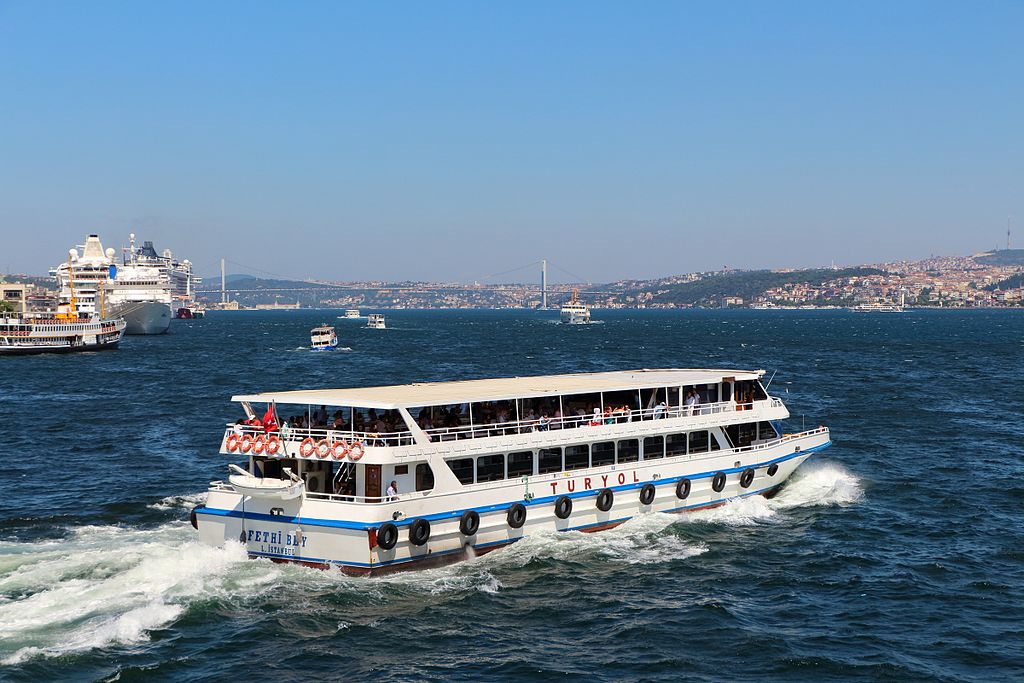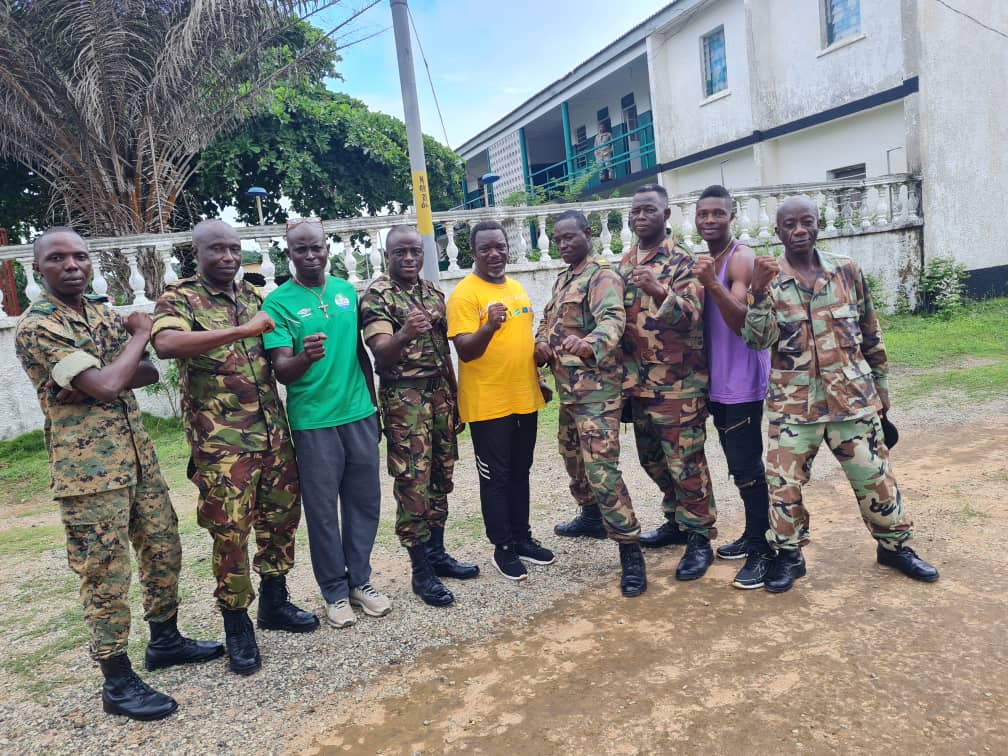By: Joseph A. Kamanda
Government claimed to have procured two thirty-five-year old third-hand ferries to alleviate the growing sea transportation problems faced by commuters to and from Freetown, Lungi and beyond, if the public should hold and go by what is making the rounds on social media.
Other sources monitored by this writer are that the two 35-year-old ferries are not owned by the Government of Sierra Leone, but Turkish aviation investors, who are at advanced stage of expansion works at the Freetown International Airport to house Turkish Airline Terminal as part of preparations ahead of commencement of operations.
Had the third-hand ferries been property of the Government, the public would have been informed by government through the Ministry of Transport and Aviation, its cost and procurement processes involved therein, which didn’t happen in the case of the two used boats.
That also speaks to the facts that the ferries are owned by Negma, the Turkish company which has been in a 25-year deal with the Government of Sierra Leone. But why then the Minister of Transport and Aviation was over the weekend busy misleading the public with lies as if Government partly own the facility. At any given rate the provision of the facilities be it the state or private investors is a welcome idea, though Government does not in any way deserve praise singing nor hero worshipping for the provision of such basic social services for taxpayers. It is the obligatory responsibility of any sober-minded pro-people administration to be always working in the best interests of the people, whose taxpayers’ monies are utilised to run the very Government.
Certainly the two over-used 35-year-old ferries are not enough to solve the challenging transportation troubles faced by the people of Sierra Leone. There are transportation challenges everywhere in the country and Government should therefore think out of the box and work towards addressing problems beyond its 2023 presidential campaign gimmicks, by way of coming up with reliable and diversified solutions to solve the age-old transportation challenges in Sierra Leone. Not just for election quick-fixes to win votes in the north-west, but provide remedies that should be geared towards handling intercity shuttles, regional, districts, air and other roads transport service delivery woes the people are always grappling with.
For all the people know and are expecting from President Bio and his ministry of transport to address is to avoid the cheap politics and sincerely deliver social service utilities to their doorsteps. Such facilities shouldn’t be tied to deceitful political promises by state actors, like the ruling Sierra Leone People’s Party (SLPP) operatives are busy praise-singing their failed political lords for providing a used 35-year-old third-hand ferries aimed at facilitating the movements of commuters, goods and services to and from Lungi, a community President Julius Maada Bio during his 2021 State Opening of Parliament said his government had earmarked engineers and developers for to get the Lungi bridge up and running, but has ended up hiding under the canopies of Negma to show up with two very old ferries as if they were procured by the Government of Sierra Leone. Prior to the arrival of the ferries, Bio’s mouthpieces had long told the nation that the Lungi bridge was never part of the Bio 2018 presidential campaign promises.
Yet, presidential campaign promises or not, the public always expect efficient service delivery from whichever government that is in office. It does not matter who wins the mandate of the electorate, as long as that individual(s) is/are capable enough to serve the country, the person can continue to win positions of trust with high level of public confidence. In the situation of the bridge promised the people of Lungi, President Bio has failed the people of that part of the country. It is therefore no gainsaying by SLPP sons and daughters who celebrating the ferries to know the facilities are not a favour from Government but the obligatory task of the Government through its line Ministry of Transport and Aviation to provide reliable and cost-effective sea transportation to ensure easy access to all river communities in the country. Government does not need to be hero worshipped for providing such service on the eve of elections, as such moves are being widely seen as deliberate political ploys by the SLPP to win votes in the North-Western Port Loko district.
Transportation challenges in Sierra Leone start right from the most populated areas in the country, Freetown, the most densely populated area of Sierra Leone, lacks adequate public transport service, although the controversial Mid-Term Housing and Population Census in its provisional date recently issued, moved Freetown’s population to Kenema. Yet, there continue to be emerging transportation problems for commuters within and around “less populated,” Freetown. A situation Government keeps paying lip service to for close to five years now. That should not be surprise to the public because the Minister of Transport and Aviation, Kabineh Kallon, is quoted to have said on SLBC cameras that Government does not make profits from public transport services delivery, and therefore his ministry is not obliged to offer town service transportation facilities to commuters in major towns and cities such as Freetown. That is why there is massive suffering of commuters for public transportation in Freetown.
It is known that Government is not a business entity and should therefore not be expected to be making profits like private investors, but they should serve as a public services/utility providers to taxpayers, as much is expected of the Bio-led SLPP Government and any other administration in the nearest future to provide public transport facilities for intercity shuttles, to ease transportation burden on Freetown commuters, rather than just offering 35-old ferries for those in Lungi to win their votes comes the next election.
Kabineh Kallon, in a short video shared via the Strategic Communications official Twitter page by courtesy of the Ministry of Information and Communications, failed to explain the cost or the procurement processes observed in the supply of the two ferries. That also clearly notes that facts that the two old ferries are not Government owned by the Turkish company Negma. All Kallon told the people of Lungi is to handle the facilities well as if the ferries were going be utilised only by Lungi.
Besides, the two overused ferries Government is covering up with, the Ministry of Transport and Aviation has not been able to provide adequate road transport services in close to five years now. And a good number of Government buses being run by the Sierra Leone Roads Transport Corporation (SLRTC) are only assigned to the south and eastern regions, leaving other areas to suffer for public transportation. In fact, there are more buses assigned to Bo, Kenema, Pujehun and Kailahun than those assigned to Makeni, Kambia, Port Loko, Magburaka and Kabala not to talk of Falaba.
As for Freetown, commuters are left at the mercies of private-commercial transport service providers with their escalating fares continuing to affect every aspect of the municipality livelihoods under the watch of the Sierra Leone Police. Government should therefore be up to its task of providing reliable, efficient and cost-effective road, air, and seas transportation facilities for the people of Sierra Leone to stop hiding under the canopies of the Turkish company, Negma, for they are here as serious investors and government should not be seen over burdening them. The Government of President Bio must stop claiming credits that do not belong to them. Development partners working in close collaboration with the Government of Sierra Leone have off-late come to realise that the Bio administration is so eager to claim credits that do not deserve them to a point that they hardly acknowledge the efforts of donors, nor accord credits to their predecessors. No wonder one of Government partners made sound clarifications at the unveiling of a road work elsewhere in the country.











